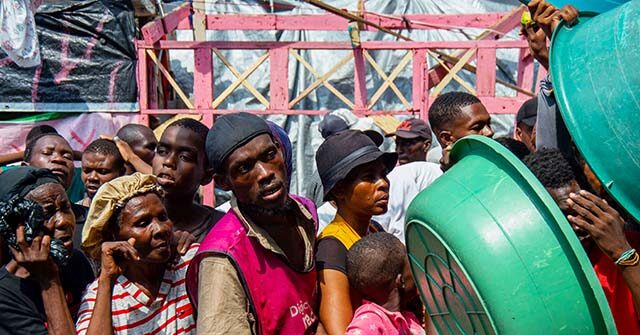Haiti is grappling with a severe security crisis marked by rampant gang violence, culminating in a recent massacre in the farming town of Pont-Sonde that left at least 70 dead and displaced around 6,000 residents. Prime Minister Garry Conille’s trip to Kenya and the United Arab Emirates was aimed at seeking assistance in combating the escalating violence, which has seen gang factions, particularly the Gran Crif gang, assert control over the region since the assassination of President Jovenel Moise in July 2021. These gangs have been actively moving into the Artibonite Valley, Haiti’s agricultural heartland, where they have turned farming communities into sites of extortion, kidnappings, and brutal killings, significantly undermining food security in the area and creating a humanitarian disaster.
The gruesome attack on Pont-Sonde, characterized by the presence of heavily armed gang members who reportedly stormed the town, set fire to homes, and indiscriminately killed residents, underscores the dire state of security in Haiti. Gang leader Luckson Elan, who heads Gran Crif, justified the violence by asserting that the townspeople and the government share the blame for not adequately protecting his gang members from harm. This rhetoric reflects a disturbing trend where gang leaders exploit the chaos and present themselves as having territorial claims over regions that include essential resources like rice, further destabilizing the nation’s food production systems and overall governance.
The United Nations has condemned the unprecedented levels of violence perpetrated by gangs like Gran Crif, highlighting the severity of their tactics, which include not only mass killings but also systemic human rights abuses, humanitarian obstruction, and gender-based violence. In light of the massacre, Prime Minister Conille articulated the gravity of the situation, framing the violence as not just an assault on individuals but on national dignity and peace. He vowed to strengthen law enforcement efforts through international collaboration and promised to restore order amid the deteriorating security landscape, which has seen police forces overwhelmed and often paralyzed by fear when faced with heavily armed gangs.
On the ground, the Haitian National Police’s response to the Pont-Sonde tragedy has drawn significant criticism, particularly regarding their lack of intervention during the massacre, which human rights observers described as chaotic and unprotected. Eyewitness accounts revealed that police officers remained within their stations while armed gang members roamed freely, dispensing brutality. Organizations such as RNDDH have expressed concerns that the death toll is likely even higher due to unaccounted for victims, indicating a broader issue of systemic violence that transcends individual incidents and encompasses a failure of law enforcement to act effectively in the face of organized criminal activity.
Prime Minister Conille’s discussions in Kenya reflect a broader strategy to secure international support, particularly through peacekeeping efforts aimed at stabilizing the country. His acknowledgment that the Haitian police force is drastically under-resourced—having only about 1,400 deployable officers against over 200 gangs—highlights the unsustainable nature of current policing efforts. The anticipated arrival of additional troops from Kenya, as pledged by President William Ruto, represents a glimmer of hope but also underscores the urgency of the situation, as even these efforts have been criticized domestically in Kenya. The lack of adequate police resources in Haiti further complicates engagement against well-armed and entrenched gangs that have aligned themselves with international crime syndicates.
Conille emphasized the pressing need for a coherent approach to the complex security landscape in Haiti, where gangs engage in guerrilla warfare tactics that turn civilian neighborhoods into battlegrounds. He illustrated this by describing the police’s struggle to respond effectively to gang assaults, which require intricate house-to-house interventions fraught with risk. The Prime Minister’s plea for international aid not only serves as an urgent call to action but also as an acknowledgment of the inadequacies in local governance and law enforcement capabilities. The future of Haiti hinges precariously on coordinated international and local efforts to restore safety and law, showcasing a critical juncture in the country’s ongoing battle for stability and recovery from a protracted history of violence and corruption.

